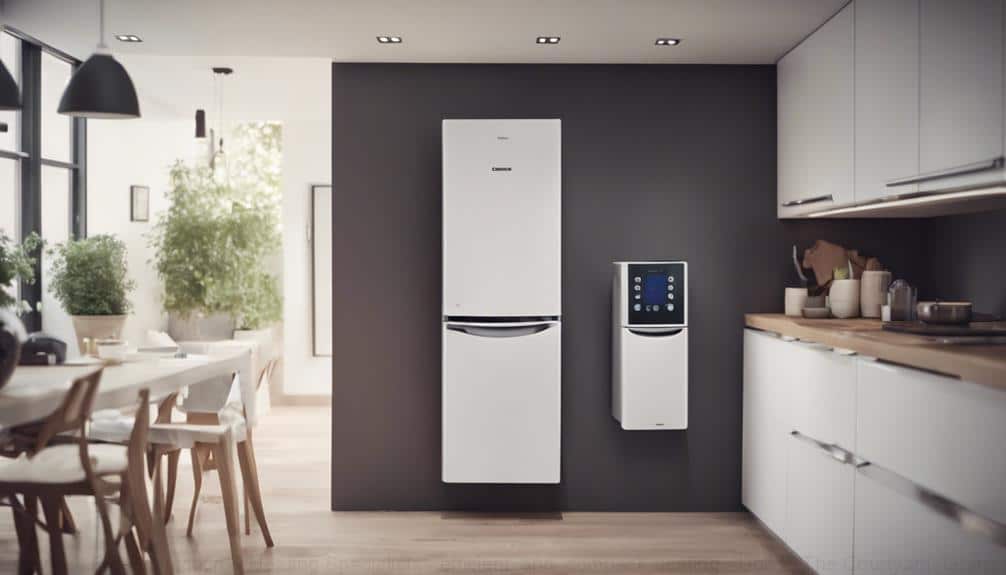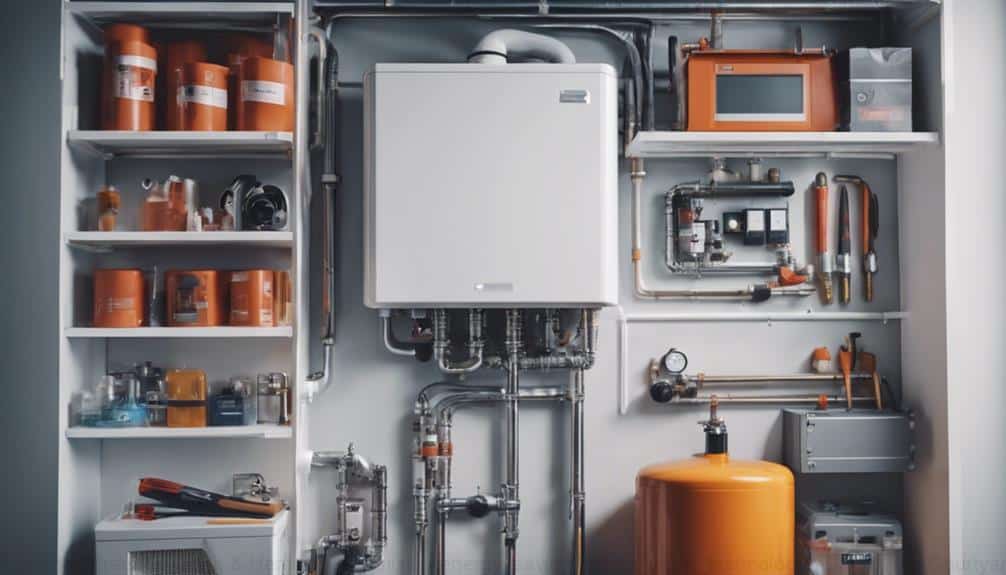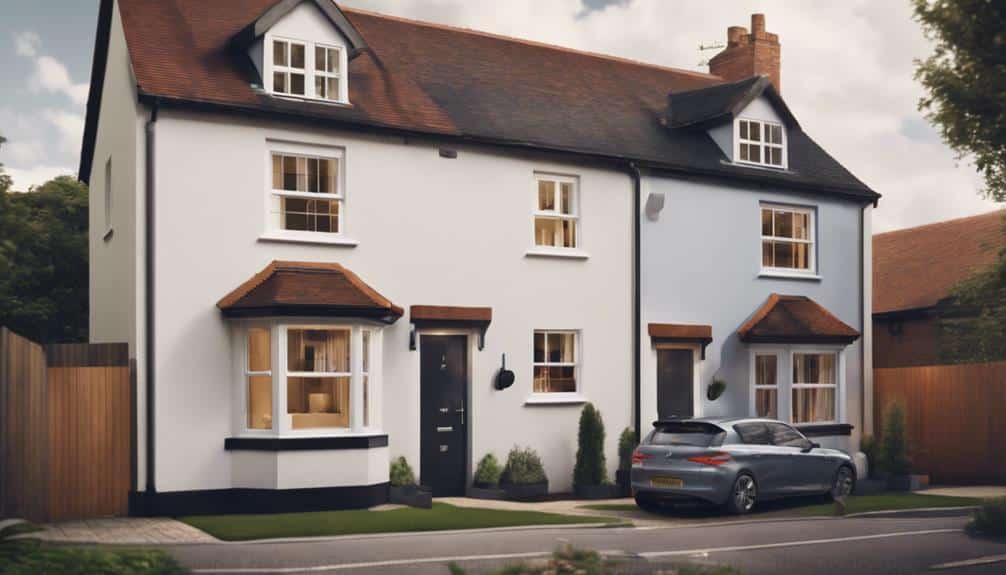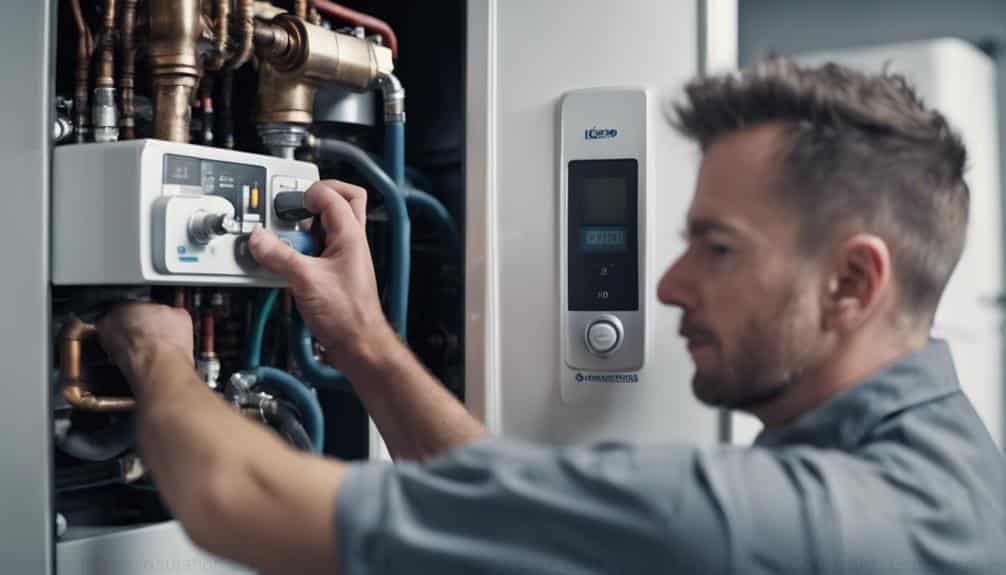Combi boilers revolutionize home heating with their compact size and high efficiency. These boilers combine hot water and central heating, saving space and offering cost-effective performance. They eliminate the need for separate water storage, reducing installation and maintenance costs.
Operating at efficiency levels of up to 98%, they support sustainability by minimizing energy consumption. The benefits of these boilers go beyond their compact design and efficiency, redefining residential heating systems by merging hot water and central heating in a single unit.
Table of Contents
ToggleAdvantages of Combi Boilers

Combi boilers combine water heating and central heating in a single unit, eliminating the need for a separate hot water storage cylinder or cold water tank. This integration reduces installation and maintenance costs.
Combi boilers have a high efficiency of up to 98%, minimizing energy wastage and reducing environmental impact. By heating water on-demand from the mains supply, they help conserve energy and decrease carbon emissions.
Their compact design saves space, making them a sustainable heating solution for small to average-sized homes.
How Combi Boilers Save Space
Combi boilers are known for their space-saving benefits in residential heating options. They achieve this through a compact design that integrates water heating and central heating in a single unit.
Efficiency of Combi Boilers

Combi boilers, known for their high efficiency levels reaching up to 98%, offer significant cost savings to homeowners. These boilers consume less energy for water heating and central heating, leading to reduced energy usage and lower carbon emissions.
The operation at high efficiency levels not only benefits homeowners financially but also contributes to a greener environment by promoting sustainability in residential heating systems.
Factors Impacting Combi Boiler Suitability
Key Factors Affecting Combi Boiler Suitability:
- Mains Water Pressure: The sufficient mains water pressure ensures a steady flow rate, directly impacting the combi boiler's performance.
- Boiler Capacity: Choosing a boiler with the right capacity based on household hot water demands is crucial for efficiency.
- Property Size: Considering the property size and the number of bathrooms helps ensure adequate hot water supply to all necessary outlets.
Comparing Combi Boilers to Traditional Systems

Compared to traditional systems, combi boilers provide a space-saving solution for heating and hot water in homes. They are efficient and compact, making them a popular choice for homeowners. Combi boilers are more cost-effective in the long run due to their higher energy efficiency, leading to significant energy savings over time. Traditional systems may have higher operating costs due to space requirements for installation and maintenance. The table below outlines the key differences between combi boilers and traditional systems:
| Aspect | Combi Boilers | Traditional Systems |
|---|---|---|
| Cost Comparison | Generally more cost-effective | Higher operating costs |
| Energy Savings | Higher energy efficiency | Potentially higher energy consumption |
Popular Combi Boiler Models
Top choices for domestic heating solutions include popular combi boiler models known for energy efficiency and easy installation. The sought-after models are the Worcester Bosch Greenstar CDi Compact, Viessmann Vitodens 050-W Combi, and Alpha E-Tec.
These models offer high energy efficiency and hassle-free installation, making them ideal for homeowners seeking to save on energy costs.
Maintenance Tips for Combi Boilers

Effective maintenance practices are crucial for ensuring peak performance and longevity of popular combi boiler models like the Worcester Bosch Greenstar CDi Compact and Viessmann Vitodens 050-W Combi.
Annual servicing by a qualified engineer is essential to inspect and clean components, check for leaks, and ensure safe operation.
Staying alert to unusual noises, fluctuations in heating performance, or sudden increases in energy consumption can aid in early issue detection.
Timely troubleshooting techniques can prevent minor problems from escalating, saving time and money in the long run.
Frequently Asked Questions
Can a Combi Boiler Work With Solar Panels for Heating Water?
Solar panels can be combined with combi boilers to enhance energy efficiency and reduce costs for water heating. This integration harnesses renewable energy, decreases environmental impact, and maximizes the benefits of both systems for sustainable and economical heating solutions.
Are Smart Thermostats Compatible With Combi Boilers?
Smart thermostats can enhance energy efficiency in most combi boilers by offering programmable settings and remote control features. However, compatibility with various boiler models and communication protocols may pose concerns. It is advisable to refer to manufacturers' guidelines for optimal integration.
Do Combi Boilers Require Additional Water Treatment Systems?
Regular servicing and proper water treatment are essential for preventing corrosion in combi boilers. These boilers typically do not require additional water treatment systems. Maintaining good water quality can help extend the lifespan of the boiler and avoid potential issues.
Can a Combi Boiler Be Used in Conjunction With Underfloor Heating?
Combi boilers are compatible with underfloor heating systems, providing efficient heating solutions. The energy efficiency of combi boilers makes them suitable for this setup, ensuring effective warmth distribution throughout spaces.
Are Combi Boilers Suitable for Off-Grid Properties Using Alternative Fuels?
Combi boilers are usually unsuitable for off-grid properties that rely on alternative fuels such as LPG or oil, as they require a mains gas supply. However, specific models designed for alternative fuels like LPG or oil can be used to achieve off-grid compatibility.



